Introduction to ABA and Academic Preparedness
Applied Behavior Analysis (ABA) is an evidence-based therapy widely recognized for its effectiveness in supporting children, particularly those with autism spectrum disorder (ASD), in developing critical skills necessary for academic success. This comprehensive approach focuses on building communication, social interaction, self-regulation, and independence to ensure children transition smoothly into structured educational environments. In this article, we explore how ABA therapy prepares young learners for school, highlighting the skills it fosters, the evidence backing its effectiveness, and the strategies used to facilitate an easy transition into academics.
Core Skills Developed Through ABA Therapy That Support School Success
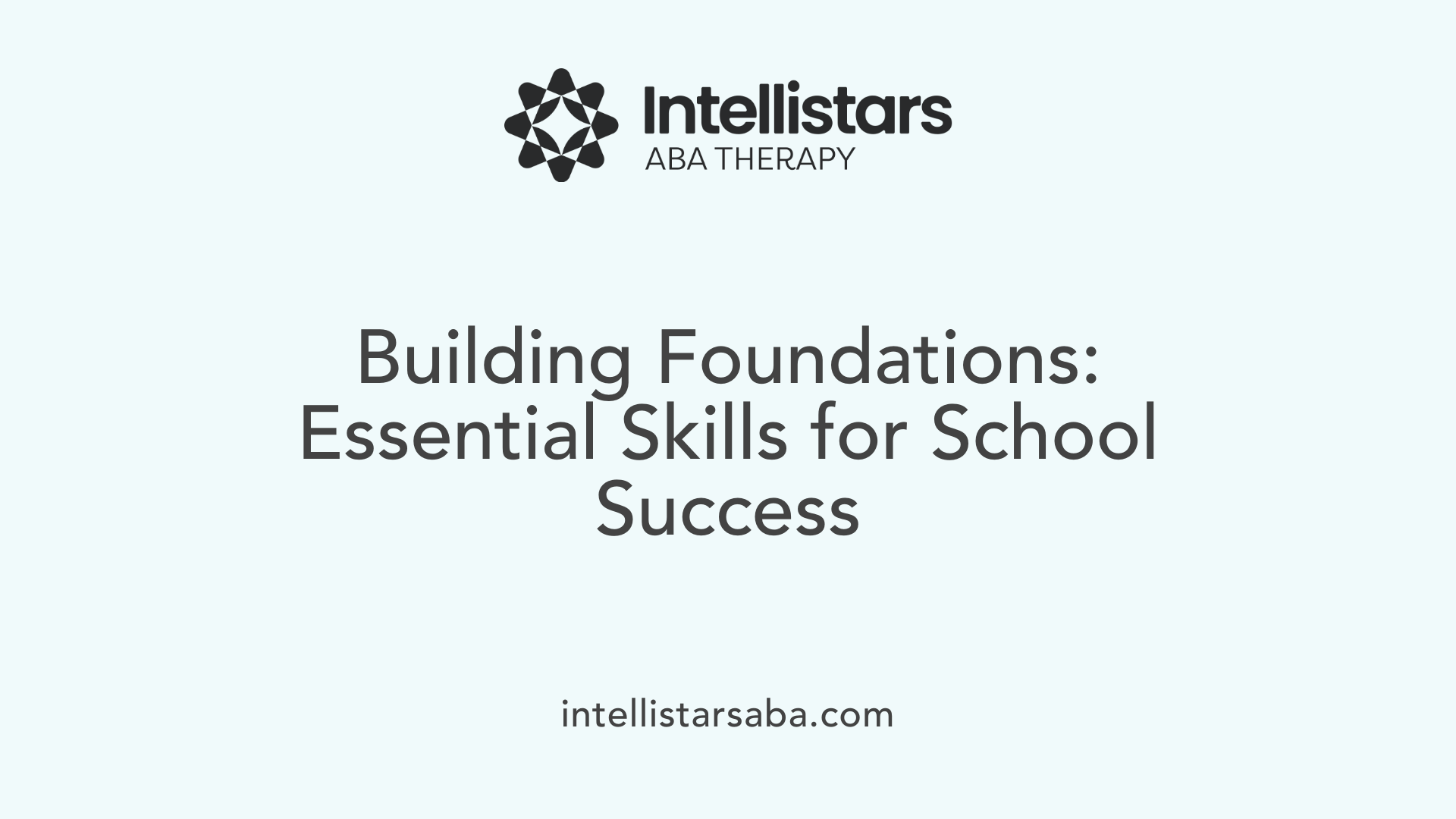
What skills developed through ABA therapy support school success?
ABA therapy plays a crucial role in preparing children with autism spectrum disorder (ASD) for school by fostering a wide range of skills. Children who participate in ABA programs tend to develop improved communication abilities, including requesting help, labeling objects, and understanding social cues. These skills are vital for engaging effectively with teachers and classmates.
In addition, ABA therapy emphasizes social skills like making eye contact, taking turns, and initiating interactions with peers. These behaviors help children build friendships and participate fully in group activities.
Academic readiness is another focus, with children learning to follow multi-step instructions, match objects, count, and recognize letters and numbers. These skills serve as a foundation for classroom learning and academic achievement.
Self-help and daily living skills are also emphasized, covering practical tasks such as dressing, toileting, and organizing personal belongings. Developing independence in these areas prepares children for the routines they will encounter at school.
Behavioral regulation is supported through strategies to improve attention, impulse control, and emotional management. This helps reduce disruptive behaviors and promotes focus during learning activities.
Overall, ABA therapy equips children with essential cognitive, social, communication, and adaptive skills that are necessary for a successful transition into the school environment and ongoing academic success.
| Skill Area | Specific Skills | Impact on School Success |
|---|---|---|
| Communication | Requesting, labeling, understanding social cues | Enhances classroom interactions and peer relationships |
| Social Skills | Eye contact, turn-taking, peer interactions | Fosters inclusion, teamwork, and friendship formation |
| Academic Skills | Following instructions, matching, counting, letter/number recognition | Supports learning of foundational academic concepts |
| Self-Help Skills | Dressing, toileting, organizing belongings | Promotes independence and daily routine management |
| Behavioral Skills | Attention, impulse control, emotional regulation | Improves focus, reduces disruptive behavior |
By targeting these areas, ABA therapy helps children develop the skills they need to thrive both socially and academically in school settings.
How ABA Therapy Enhances Academic Readiness in Children
How does ABA therapy contribute to children’s academic readiness?
Applied Behavior Analysis (ABA) therapy plays a vital role in preparing children, especially those with autism, for the demands of school life. It focuses on building a wide range of skills that support both learning and social adaptation.
One of the main areas it targets is the development of communication and language skills. ABA helps children improve both verbal and non-verbal communication, such as gestures, facial expressions, and the use of picture exchange systems. These skills enable a child to ask for help, share thoughts, and participate actively in class activities.
Building social interaction skills is also a core component. ABA teaches children how to take turns, share, and interpret social cues—fundamental skills for forming friendships and working in groups. Through structured activities like role-playing and social stories, children learn behaviors that foster inclusion and peer engagement.
Self-care routines, including dressing appropriately and toileting, are reinforced during therapy. These practical skills support independence, making daily school routines more manageable.
Attention and self-control are cultivated through strategies like visual schedules and timers, which help children manage distractions, impulsivity, and emotional reactions. Improving these areas allows children to follow classroom routines more effectively and reduces disruptive behaviors.
Pre-academic skills such as following multi-step instructions, recognizing early reading and math concepts, and engaging in problem-solving are systematically taught through breakdowns of complex tasks into smaller steps. Reinforcement and prompts are used to help children master these foundational skills.
Collaboration with families and educators ensures that the skills learned during ABA therapy are generalized and maintained across environments. Regular communication and joint planning help children transfer their newly acquired skills from therapy sessions to real classroom settings.
In sum, ABA therapy supports children’s academic readiness by developing essential communication, social, self-care, attention, and academic skills—motivation that helps them thrive in school and beyond.
Fostering Behavioral, Social, and Communication Skills for Success
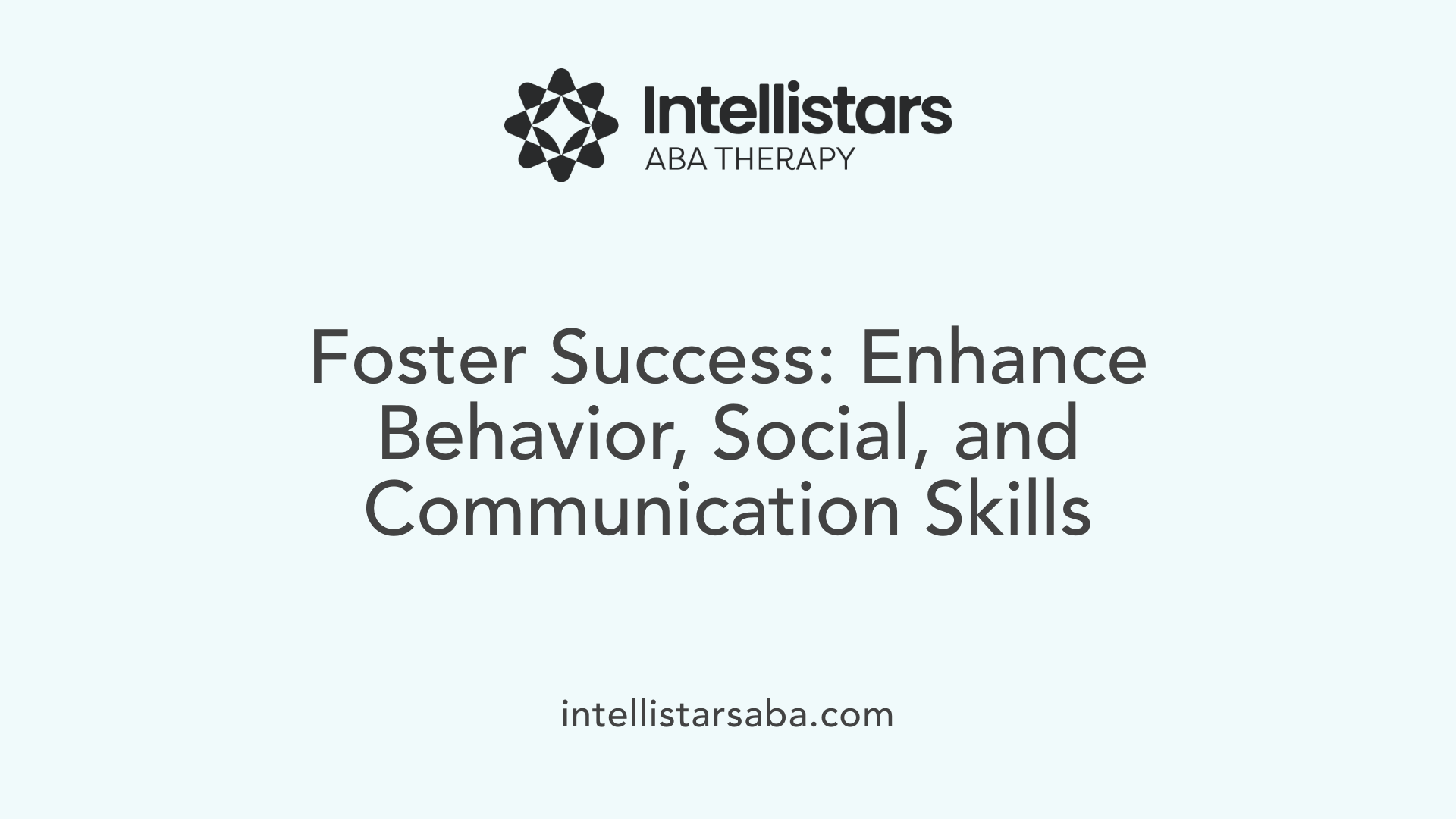
How does ABA therapy foster behavioral, social, communication, and self-help skills for educational achievement?
Applied Behavior Analysis (ABA) therapy is a well-established, evidence-based approach designed to help children develop the skills needed to succeed in school. It employs personalized strategies grounded in the science of learning and behavior to promote positive change.
One of the core techniques used in ABA is positive reinforcement. This involves rewarding desired behaviors to increase their occurrence. For example, a child might receive praise or a small reward for sharing during group activities or following directions.
Discrete trial training (DTT) is another effective method, where skills are broken down into small, manageable steps. Therapists present clear instructions, then prompt and reinforce correct responses. This systematic approach helps children acquire foundational skills like speech, play, and self-care.
Natural environment teaching (NET) focuses on embedding learning opportunities in everyday settings, such as during play or routines. By practicing skills in real-life contexts, children learn to generalize behaviors like asking for help or sharing toys to various situations.
ABA therapy also emphasizes the use of visual supports, such as picture schedules, timers, and checklists. These tools aid children in understanding routines, managing emotions, and transitioning smoothly between activities.
Data collection is central to ABA. Therapists monitor progress to tailor interventions accurately, ensuring that each child’s unique needs, interests, and developmental level are addressed. This personalized approach helps build language, social, and academic skills.
By focusing on specific goals like improving communication—both verbal and non-verbal—developing social behaviors such as turn-taking, and enhancing self-help abilities like organizing belongings, ABA supports comprehensive educational achievement.
In addition, ABA addresses behavioral challenges by understanding their causes and applying individualized interventions. This reduces disruptions and creates a more conducive learning environment.
In summary, ABA therapy nurtures students' abilities to participate actively, adapt to routines, and develop independence—crucial ingredients for academic success and long-term educational development.
The Evidence Supporting ABA's Role in School Readiness
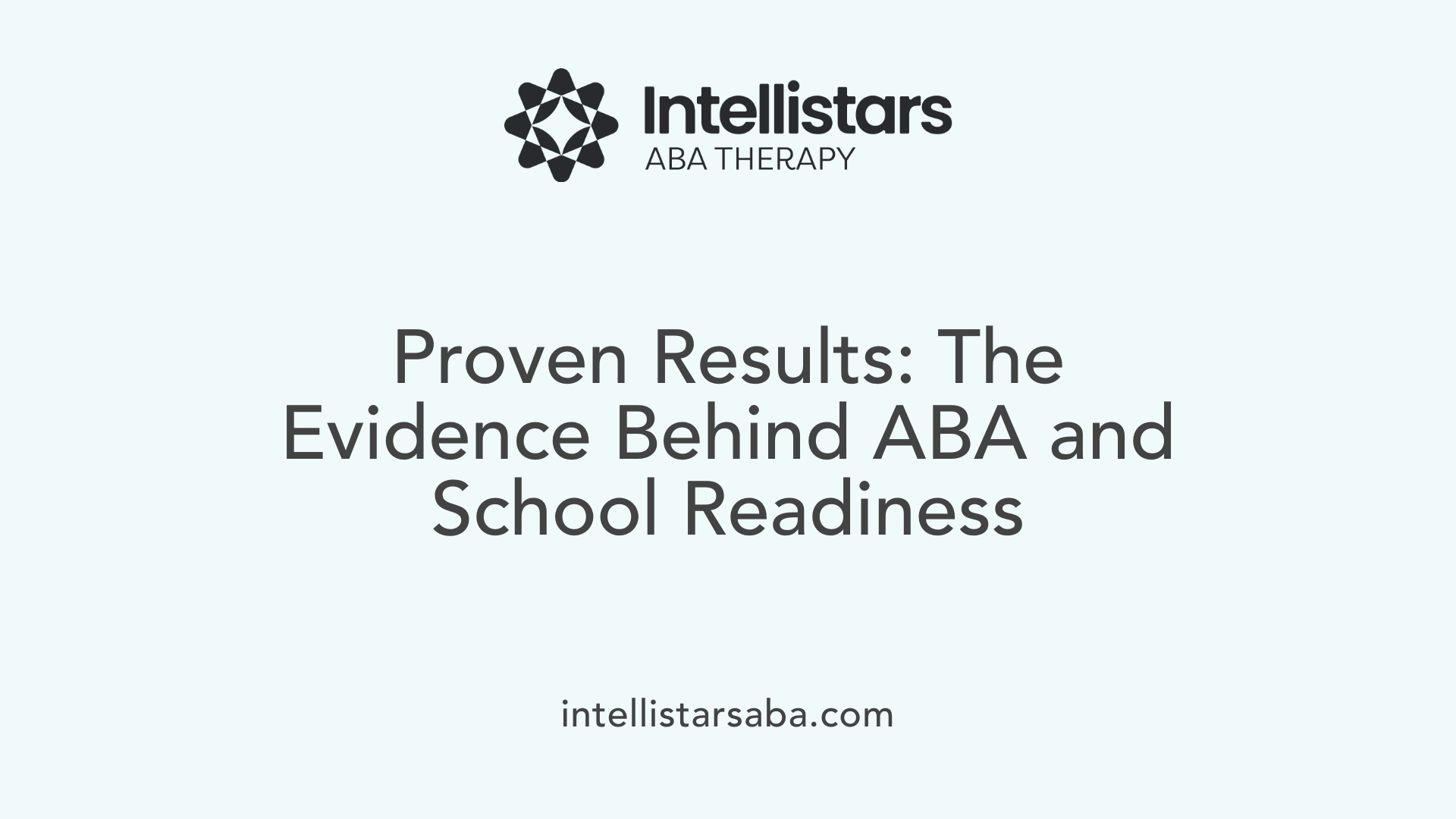
What evidence exists to demonstrate ABA therapy’s effectiveness in preparing children for school?
Research provides strong support for the positive impact of ABA (Applied Behavior Analysis) therapy on preparing children for school. Multiple studies highlight how ABA helps children develop vital skills such as communication, social interaction, and daily living skills, which are essential for thriving in a classroom setting.
One of the crucial benefits observed is that ABA therapy promotes early intervention, ideally starting between ages 2 and 6. This early approach has been shown to significantly improve attention span, emotional regulation, and independence—foundations critical for successful preschool and kindergarten experiences.
ABA programs focus on teaching children to follow multi-step instructions, which directly supports academic tasks and classroom routines. These programs also address behavioral challenges through tailored strategies like positive reinforcement and functional communication training, reducing disruptions and fostering an environment conducive to learning.
Further, ABA supports social skill development, such as taking turns, sharing, and understanding non-verbal cues—skills vital for peer interactions and teamwork. Children learn to manage emotions and cope with transitions using visual supports and timers, easing their adaptation to new routines.
Collaboration between therapists, families, and educators ensures that skills learned during ABA therapy are reinforced across environments, enhancing generalization and consistency. As a result, children are more prepared to participate actively in school activities, leading to better academic and social outcomes.
Research findings conclude that ABA therapy not only contributes to immediate skill acquisition but also promotes long-term success by building a strong foundation for future learning and development.
| Evidence Area | Key Findings | Additional Notes |
|---|---|---|
| Early intervention | Improves attention, emotional regulation, independence | Initiating therapy early yields better readiness outcomes |
| Communication skills | Enhances verbal and non-verbal interaction | Supports understanding and participation in class |
| Social skills | Develops sharing, turn-taking, understanding social cues | Promotes positive peer relationships |
| Behavior management | Reduces disruptions through tailored plans | Ensures a conducive learning environment |
| Academic skills | Gradual building of pre-reading, writing, math | Facilitates academic growth and confidence |
| Skill generalization | Reinforces skills across settings | Ensures long-term retention and use |
Research consistently shows that ABA therapy is a proven, evidence-based approach to help children develop the skills needed for school success. When started early and combined with collaboration among therapists, families, and teachers, ABA can significantly improve both immediate skills and long-term educational outcomes.
Supporting a Smooth Transition: ABA Strategies and Collaboration
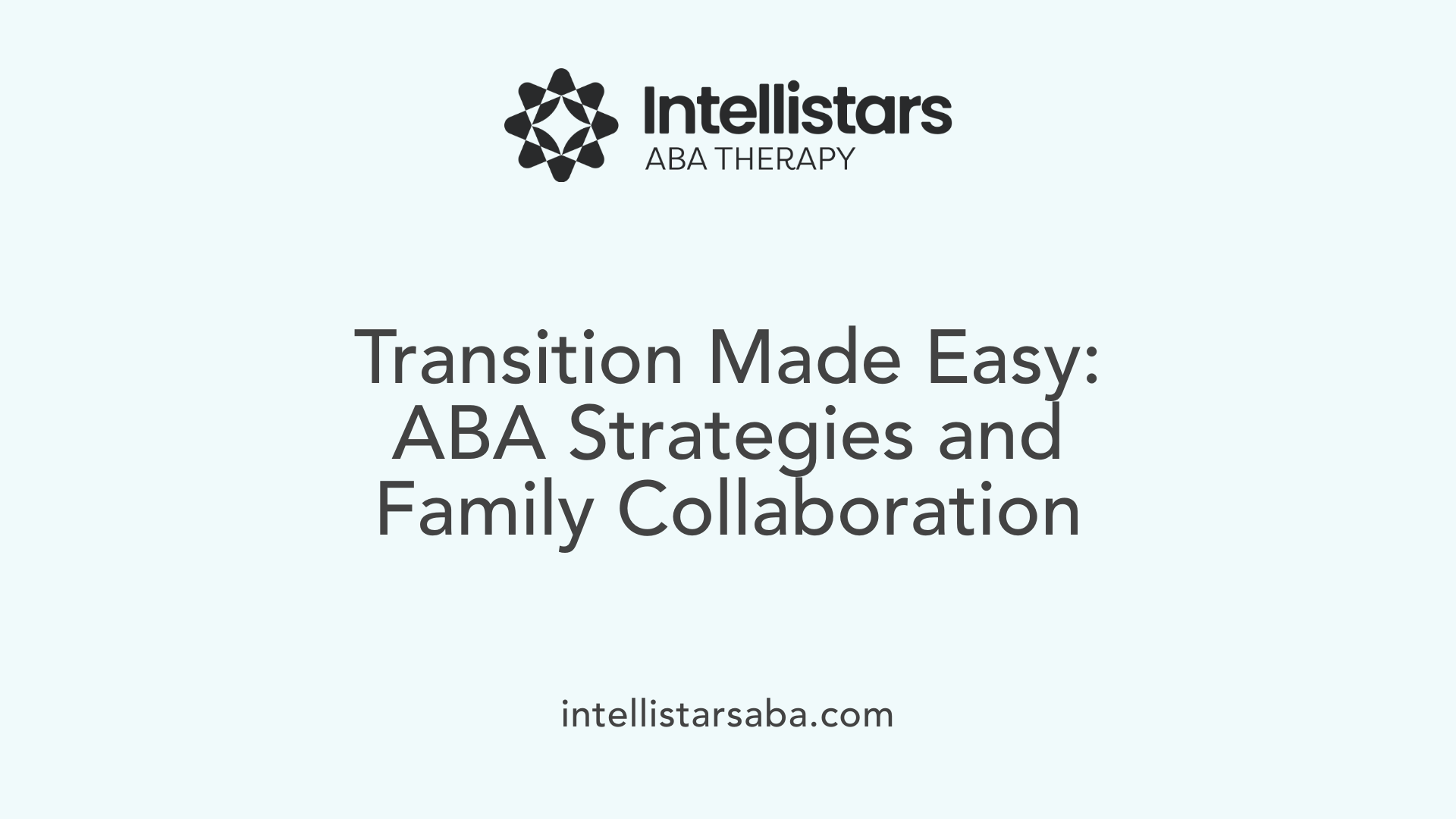
What is the role of ABA therapy in facilitating a smooth transition to school for children?
ABA therapy is instrumental in helping children with autism prepare for the move to a school environment. It focuses on teaching foundational skills such as communication, social interaction, following directions, and emotional regulation. By creating structured routines and predictable settings, ABA reduces anxiety and behavioral difficulties that can arise during this important period.
A variety of tools and techniques are used to support children during transitions. Visual schedules are a core component, showing step-by-step routines for the day or specific activities. Social stories help children understand what to expect from new environments, easing fears and uncertainties.
Positive reinforcement encourages children to practice and master new skills. For instance, praising a child for following instructions or engaging socially reinforces those behaviors, making them more likely to recur.
ABA therapists also teach coping strategies for sensory sensitivities and social challenges, such as requesting breaks or using calming techniques. These approaches help children manage stress and sensory overload during transitions.
Collaboration with families and educational staff is vital. Consistent strategies across home, therapy, and school settings ensure that children receive support wherever they are. Teachers and parents work together to reinforce skills learned through ABA, providing a unified approach that boosts the child's confidence and independence.
In summary, ABA therapy facilitates a smoother transition by equipping children with the skills and supports needed to navigate school routines, socialize effectively, and build emotional resilience. Such comprehensive preparation fosters a sense of security and promotes positive engagement in the new learning environment.
In-Home and School-Based ABA Services in Atlanta, GA
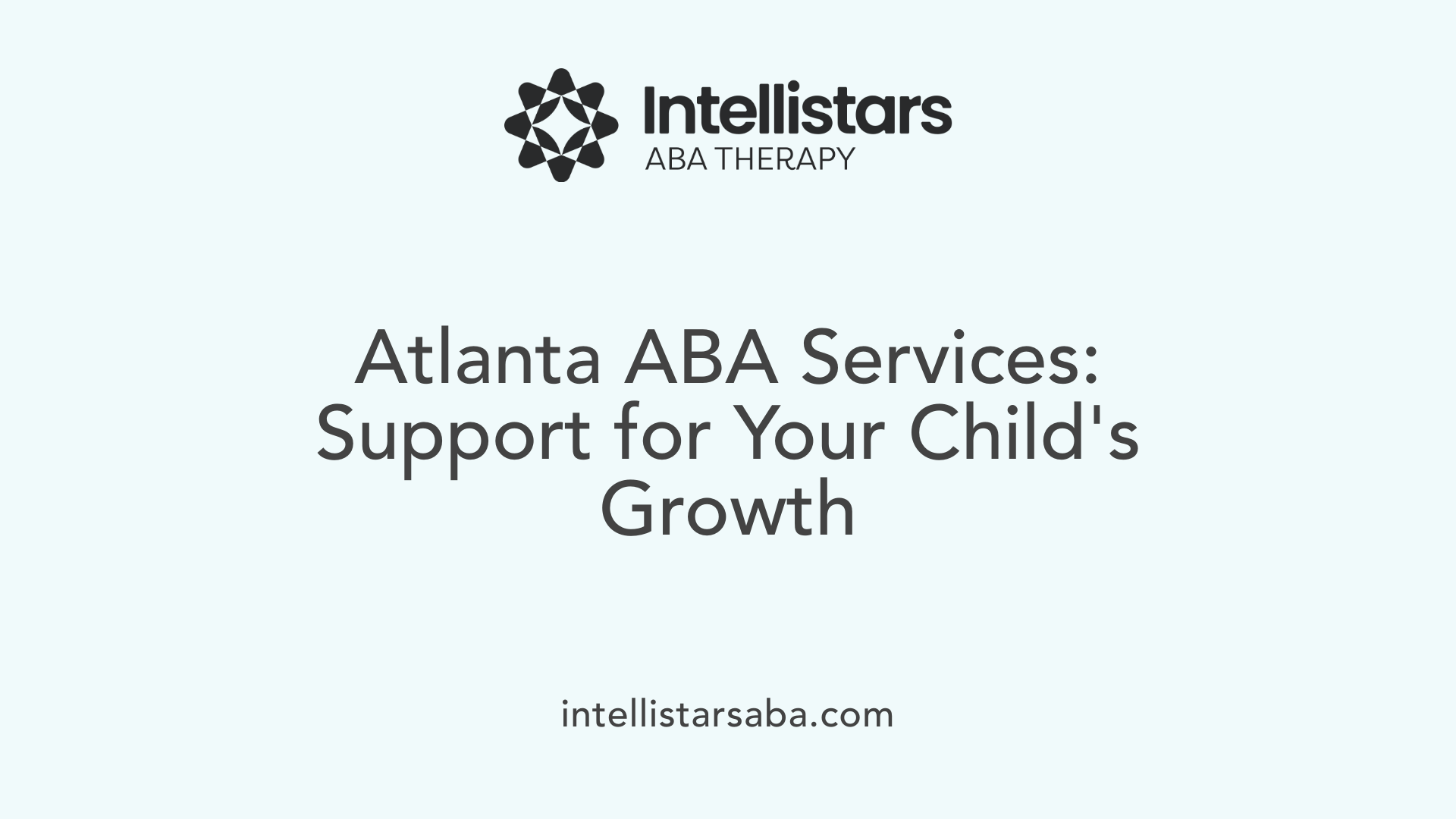 Local ABA providers in Atlanta, GA, offer a variety of personalized services designed to support children’s development and facilitate a smooth transition to school. These services include in-home therapy, group sessions, and parent training, all tailored to meet each child's specific needs.
Local ABA providers in Atlanta, GA, offer a variety of personalized services designed to support children’s development and facilitate a smooth transition to school. These services include in-home therapy, group sessions, and parent training, all tailored to meet each child's specific needs.
In-home therapy is a cornerstone of these services, providing targeted support in familiar environments. This approach helps children develop daily living skills, self-help behaviors, and routines that are essential for school readiness. Therapists work directly with children on communication, behavioral regulation, and independence skills, ensuring gains are integrated into daily routines.
Group sessions bring children together to practice social skills such as turn-taking, sharing, and engaging in cooperative activities. These sessions promote peer interaction and help children develop the social cues necessary for successful classroom participation.
Equally important is parent training, which educates families about strategies to reinforce and generalize skills learned during therapy. By empowering parents with tools and techniques—such as visual schedules, reinforcement systems, and behavioral strategies—these programs help create consistency between home, therapy settings, and school environments.
The combined approach of individualized in-home therapy, group socialization, and family involvement ensures children build a broad range of skills. This comprehensive support helps children foster independence, improve communication, and better manage behaviors, all of which are vital for a successful school experience.
In summary, Atlanta’s ABA programs are designed to prepare children for school by addressing behavioral, social, communication, and self-help skills through tailored, interactive, and supportive services. These interventions are essential for children with autism to thrive academically and socially.
Conclusion: Bridging Therapy and Classroom Success
ABA therapy is a powerful, research-backed approach that prepares children for academic success by fostering essential communication, social, behavioral, and self-help skills. Through structured, personalized programs and collaboration with families and educators, ABA ensures that children transition smoothly into school environments, equipped with the confidence and independence needed to thrive. As early intervention becomes increasingly recognized for its long-term benefits, ABA's role in laying a strong foundation for educational achievement continues to grow, making it an invaluable resource in supporting children with autism and other developmental challenges.
References
- How ABA Therapy Supports School Readiness for Child ...
- How ABA Therapy Prepares Children for School Success
- School Readiness and ABA Therapy
- How ABA Therapy Promotes School-Readiness Skills
- How Do Encore's ABA Programs Prepare Children for ...
- How ABA Therapy Boosts School Readiness
- School Readiness and ABA Therapy
- ABA Therapy and School Readiness






